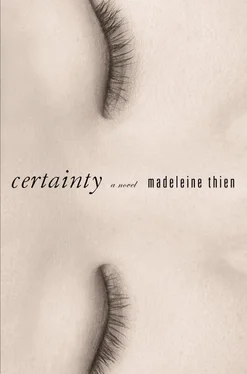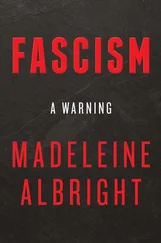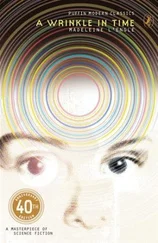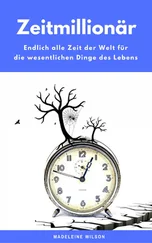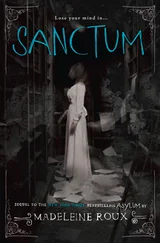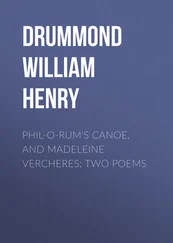There had been an influx of Indonesians into the country. Even in Ysbrechtum, he said, a tiny village, he thought he saw Ani out of the corner of his eye, a young woman, wearing a sarong underneath a wool sweater, despite the wind and cold.
He says that he remembers waking at night, imagining the tickle of the mosquito net against his skin. The loss came to him again. This ache that people told him would subside. In the farmhouse, he set up a darkroom, and he developed the rolls of film he had brought back from Jakarta. Two children washing themselves at the water pipe, running towards him, their mother out of focus in the background. The young girl with the watchful eyes. A single portrait of Ani.
His older brother Wim had taken him to the bar, where they sat and drank glass after glass of Bols. Wim had told him, “Try to forget that place. This is where your life is now.”
“Sipke,” she says. “Tell me, did Wideh ever try to find my father?”
He turns, looking into her face, thinking back. At last, he says, “I thought, after Ani died, that he would. But I don’t believe he ever did. He put all his energy into his work, into his photographs. His love for his mother was so great, you know, I think he wasn’t ready to let anything interfere with the memories he had.”
Around them, the snow begins to fall again. Sipke and Gail gather their cups, pick up the blanket, and walk back through the abandoned village. She stops and runs her hands over an anchor, rusted and heavy, that lies on the ground.
“Your father arrived in Jakarta in September,” Sipke says. Beside him, Gail turns back to the edge of the island, to the boundaries that are now disappearing into the surrounding land.
YSBRECHTUM
1992
S he and Sipke walk arm in arm along a country road. The clouds above, stretched fine, gather the light and spill it down. They are alone but for the occasional bicycle trundling past, a car that speeds by, giving them a wide berth. The road becomes a gravel track, continuing through a farmer’s field where, from time to time, a sleeping sheep lies across the path, and she and Sipke must detour around it.
When Ani grows tired, they stop and sit in the grass, eating the chocolate that Sipke now knows to carry with him. In the distance, she can see a wind turbine, sleek and white, propellers cutting through the air.
When she left Jakarta almost thirty years ago, this place had been mysterious to her. Standing in the open fields, the late autumn chill in the air, she could see in every direction, a storm or sunshine moving in, a distant wash of rain. Sipke had continued to work as a photographer, and for a time they lived in the nearby city of Groningen, coming to Ysbrechtum only a decade ago. The community here, rural and tight-knit, had been welcoming, not unkind, but she has always felt an outsider. To ease her loneliness, they had travelled frequently, going often to The Hague, where Siem, Saskia, and Tash Dertik had made their home, to Maastricht, then across the border into France. Indonesia was a world away, an item on the newscast, a photograph. But in her mind, it joined all things, a background to all that she saw.
Sipke touches her cheek. “You were far away.”
“I was thinking about this field, the first time we walked here together. About Jakarta.”
A cool breeze skims across the grass and the sheep nearby turn their faces away, hunching their ruffled shoulders. Some of the sheep are marked by a cheerful red or blue circle, as if a child had come through this field with a paintbrush. Sipke moves so that he is sitting close beside her and she leans back, her head against his chest.
He says, “I always thought we would go back, eventually.”
It was true. They had put it off time and again, saving the journey for a future date.
“It was me. I hesitated for too long.”
He shakes his head, as if to say, No, us .
“I woke up one day,” she says, “and realized the moment had passed, I no longer needed to return.”
In the last month, Wideh has come home from his travels. He is Sipke of an earlier time, a restless spirit. For years he has lived from assignment to assignment, but here, in Ysbrechtum, he seems content to lay his camera aside. Dark haired, slim, and tall, he has a confidence that moves Ani, a face that is open to the world. Even as an adult, becoming set in his ways, he surprises her still.
This morning, after breakfast, he had laid out a dozen photographs on the kitchen table, a series on Borobudur in Indonesia. When Sipke had visited the temple in 1963, Borobudur, more than a thousand years old, had been in near ruins. Back then, people would bring small tools to the site, and when they left they carried the relics and carvings away in their arms. He told her that the monument, with its Hindu and Buddhist elements, is now fully restored, rising up, offering its peaks and domes to the sky. On the day he went, the grounds were almost deserted. He had followed the walkway that spiralled up through the terraces, the bas-relief sculptures decorating the walls illustrating a journey, an ascent, away from the world of suffering. She sifted through the photographs. I thought of you, he said, turning to Ani. His dark eyes imploring her, to get well again, not to leave him. He told her how the stupas, shaped like bells, surrounded him, each one containing a statue, a boddhisatva. He had watched the sunrise, not wanting to lift the camera, to place it between himself and what he saw. The valley around him was a startling colour, a golden inlay on the deep green fields. “How peaceful it was,” he said. “The silence seemed to move like a being across the valley. I thought you would have felt at home there, just as I did.”
“Yes,” she had said, watching his face, so known to her, the grief concealed. “When I put your photos down, I can close my eyes and see the place, as if I were standing in Indonesia again.”
The wind picks up, cutting a swath in the grass. Light edges the high, cumulus clouds, throwing them into relief. She thinks of a kite in the air, of a September day in Jakarta. When Matthew arrived, he had sent a note from the hotel where he was staying, and they arranged to meet in the park on Jalan Kamboja, alongside the canal.
The night before, she had lain awake. On the table were a half-dozen letters addressed to Sipke, begun but left unfinished. He had been gone for almost a month, and without him the days had an air of unreality. She wanted to write to him, to tell him something concrete, but she could not find a way to express the rush of feelings that she herself did not fully understand. Sipke had sent her a photograph, one of the last he had taken before he left for the Netherlands. In the picture, Wideh, lying on his stomach on the floor, was setting up a game of marbles. The glass beads shimmered, and her son’s face was half in darkness. It was his father’s face that she saw, clearer than any recollection.
In the park the next day, Matthew walked towards her. She saw the curve of his shoulders, the set of his mouth, all intimately known to her, as if she had conjured the young man she once knew. He wore glasses, wire-rimmed, silver. He took her hand, holding on to it for a moment. There were dark shadows below his eyes, a weariness.
They found shade on a bench beneath a cassia, with its thousands of shifting leaves. Kites of every shape and hue swam in the air above them.
At first, their conversation rambled, a skittish bird moving from branch to branch, unsure. He told her he had flown to Tawau, staying there for a few days with his mother and her family, then continuing to Sandakan where his uncle still lived. There had been a film crew in the town, making a movie. Within days, the prisoner-of-war camps had been reconstructed, in the same place where once they had stood before.
Читать дальше
